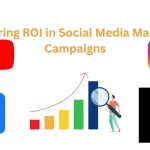Blogging is a very good profession and many people do it as a full-time career. Regularly, many people start blogging with big dream. But most of them can’t continue. In this context, our focus on why most people can’t continue blogging.
Let’s jump into the deep:
Understanding Blogging
The below fundamental aspects of blogging can help aspiring bloggers navigate the challenges and opportunities of the medium more effectively.
Blogging involves several key concepts:
Definition:
Blogging is the act of regularly updating a website with written content, often in the form of blog posts. These posts can cover a wide range of topics, from personal experiences and opinions to educational content, news commentary, and more.
Platform:
Blogging can be done on various platforms, including dedicated blogging platforms like WordPress, Blogger, Medium, or self-hosted websites using content management systems like WordPress.org.
Content:
The heart of blogging is the content itself. This can include articles, essays, guides, tutorials, reviews, interviews, and more. The content should be engaging, informative, and relevant to the target audience.
Audience:
Successful bloggers understand their target audience and tailor their content to meet their needs and interests. Building and maintaining an audience often involves engaging with readers through comments, social media, email newsletters, and other channels.
Consistency:
Consistency is crucial in blogging. Regularly updating the blog with new content helps maintain audience interest, improves search engine visibility, and establishes the blogger’s authority in their niche.
Promotion:
Writing great content is only part of the equation. Bloggers also need to promote their posts to reach a wider audience. This can involve sharing posts on social media, participating in online communities, guest posting on other blogs, and optimizing posts for search engines (SEO).
Monetization:
Many bloggers aim to monetize their blogs, either as a primary source of income or as a supplemental revenue stream. Common monetization strategies include display advertising, affiliate marketing, sponsored content, selling digital products or services, and offering premium memberships.
Analytics:
Understanding blog analytics is essential for assessing performance and making data-driven decisions. Analytics tools provide insights into metrics such as traffic, engagement, audience demographics, and conversion rates, helping bloggers track progress and identify areas for improvement.
Evolution:
Blogging is an evolving medium. Successful bloggers adapt to changes in technology, audience preferences, and industry trends. They experiment with new formats, platforms, and strategies to stay relevant and continue growing their audience.
Community:
Building relationships with other bloggers and industry influencers is valuable for networking, collaboration, and mutual support. Engaging with the blogging community can lead to opportunities for guest posting, cross-promotion, and knowledge sharing.
Why Most People Can’t Continue Blogging
There are several reasons why many people struggle to continue blogging over the long term:
Lack of Time:
Blogging requires consistent time investment to research, write, edit, and promote content. Many people find it difficult to sustain this level of commitment alongside other responsibilities like work, family, and social life.
Lack of Passion:
Some individuals start blogging without a genuine passion for the topic they’ve chosen. Without a strong interest in the subject matter, it’s easy to lose motivation and enthusiasm over time.
Writer’s Block:
Coming up with fresh and engaging content ideas regularly can be challenging. Writer’s block can strike, making it difficult to produce new posts consistently.
Discouragement:
It takes time to build an audience and see results from blogging efforts. If bloggers don’t see immediate success or fail to attract the desired audience, they may become discouraged and give up.
Technical Challenges:
Blogging often involves dealing with technical aspects like website maintenance, search engine optimization (SEO), and managing plugins or widgets. For those without technical expertise, these challenges can become overwhelming.
Monetization Pressure:
Some bloggers start with the intention of making money from their blogs. However, monetization can take time and effort to achieve, and if expectations aren’t met quickly, bloggers may lose motivation.
Burnout:
Consistently producing high-quality content can be draining, leading to burnout, especially if bloggers push themselves too hard without taking breaks.
Changing Priorities:
People’s interests and priorities evolve over time. What may have been a passion project initially might take a backseat to other commitments or interests as life circumstances change.
Comparison and Self-Doubt:
Seeing other successful bloggers or feeling like one’s own content isn’t as good can lead to feelings of inadequacy and self-doubt, making it harder to continue.
Health Issues:
Personal health issues or life events can disrupt blogging routines and make it challenging to maintain consistency.
Also Read
Tips to Success in Blogging
To overcome these challenges, bloggers need to set realistic goals, prioritize self-care, seek support from the blogging community, and stay adaptable to changing circumstances. Additionally, finding joy and fulfillment in the process of writing and sharing knowledge can help sustain long-term blogging efforts.
Here are some tips to help you succeed in blogging:
Choose Your Niche Wisely:
Select a niche that you are passionate about and that has the potential to attract a sizable audience. It’s essential to focus on a specific topic or theme to establish yourself as an authority in that area.
Create High-Quality Content:
Content is king in the blogging world. Write well-researched, informative, and engaging posts that provide value to your audience. Aim for originality, readability, and relevance to keep readers coming back for more.
Be Consistent:
Consistency is key to building and maintaining an audience. Develop a posting schedule and stick to it. Whether it’s once a week or multiple times a week, ensure that you regularly update your blog with fresh content.
Promote Your Blog:
Don’t just publish content and hope for the best. Actively promote your blog to reach a wider audience. Utilize social media platforms, email newsletters, guest posting, and networking with other bloggers to increase visibility and attract more readers.
Optimize for Search Engines:
Implement basic SEO practices to improve your blog’s visibility in search engine results. This includes using relevant keywords, optimizing meta tags and descriptions, creating descriptive and SEO-friendly URLs, and building quality backlinks.
Engage with Your Audience:
Foster a sense of community by engaging with your readers through comments, social media, and email. Respond to comments, ask for feedback, and encourage discussion to build relationships and keep readers invested in your blog.
Monetize Strategically:
Explore various monetization strategies to generate income from your blog. This could include display advertising, affiliate marketing, sponsored content, selling digital products or services, or offering premium memberships. Choose monetization methods that align with your audience and niche.
Stay Updated and Evolve:
Keep abreast of industry trends, changes in technology, and shifts in audience preferences. Adapt your blogging strategy accordingly, experiment with new formats and platforms, and continuously refine your approach to stay relevant and competitive.
Invest in Your Blog:
Treat your blog as a business and invest time, effort, and resources into its growth and success. This might involve investing in professional design, upgrading your hosting plan, learning new skills, or hiring freelancers for tasks like content creation or SEO.
Be Patient and Persistent:
Building a successful blog takes time and effort. Don’t expect overnight success. Stay patient, stay persistent, and stay focused on providing value to your audience. Keep learning, adapting, and refining your approach, and success will follow over time.
End Words
Here we share, why most people can’t continue blogging. We hope this article will be helpful for the new bloggers and blogging.





